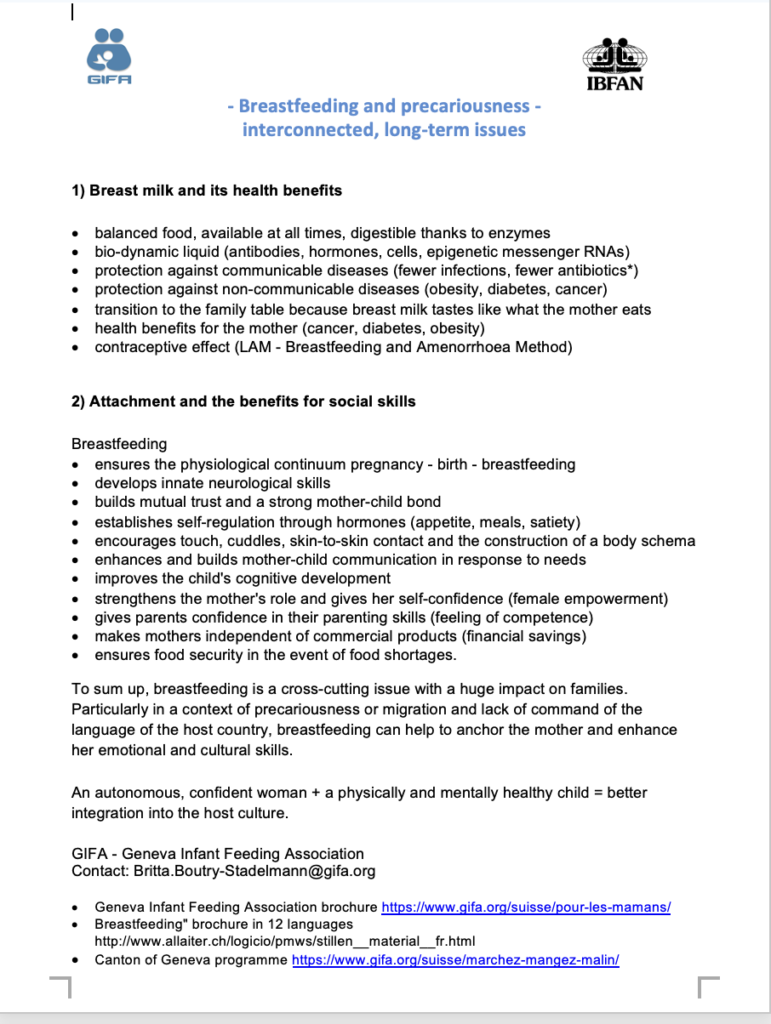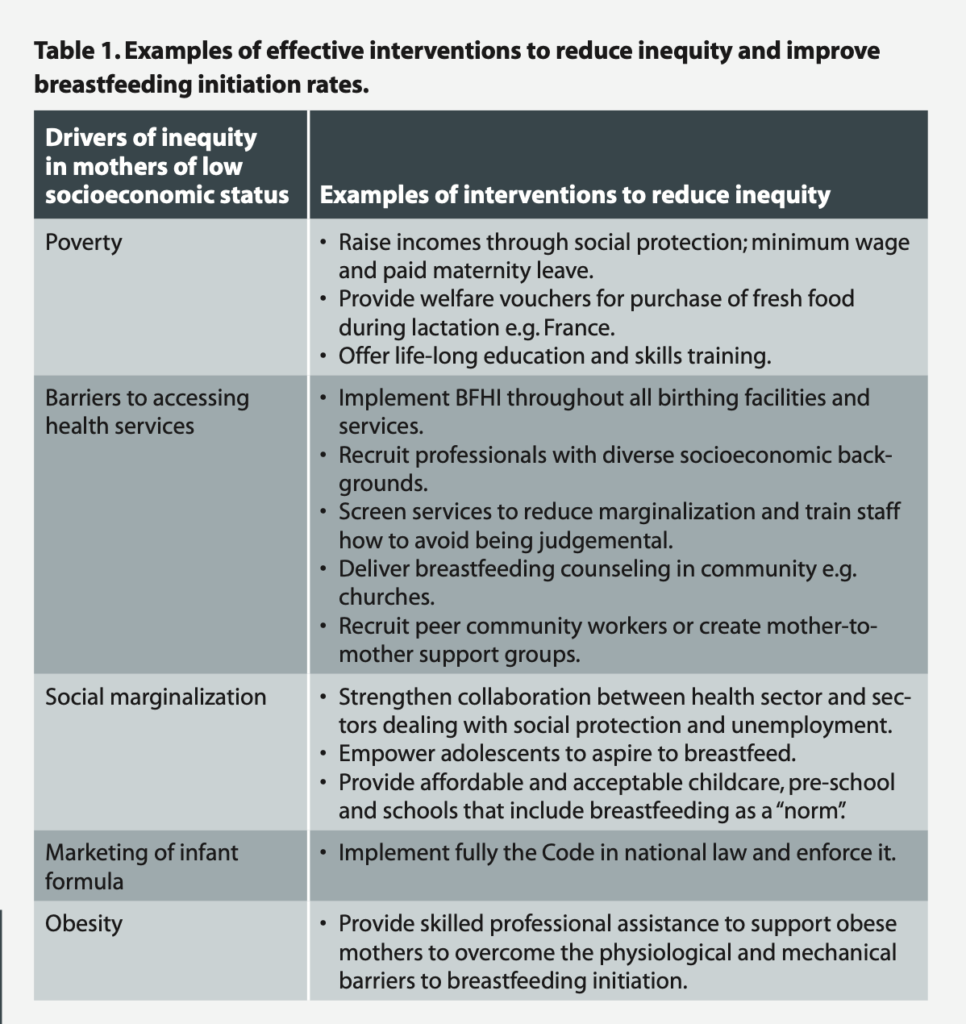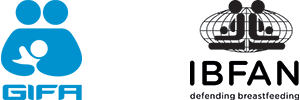Breastfeeding provides strong support in situations of social or psychological instability, and/or lack of adequate food and housing.
06/06/2025

affiche Cofam © https://www.coordination-allaitement.org/
Breastfeeding – interconnected issues and long-term impact
1) Breast milk and health benefits
- balanced food, available at all times, digestible thanks to our own enzymes
- bio-dynamic liquid (contains antibodies, hormones, cells, epigenetic messenger RNA)
- protection against communicable diseases (less infections, less use of antibiotics)
- protection against non-communicable diseases (obesity, diabetes, cancer)
- transition to the family table because breast milk tastes like what the mother eats
- health benefits for the mother (cancer, diabetes, obesity)
- contraceptive effect (LAM – Lactation and Amenorrhea Method)
- less risk of toxic contaminants in breast milk than in formula
2) Mother-child bonding and benefits for social skills
- Breastfeeding ensures the physiological continuum of pregnancy – birth – breastfeeding
- develops innate neurological skills
- builds mutual trust and a strong mother-child bond
- establishes self-regulation through hormones (appetite, eating, satiety)
- favors touch awareness, cuddling, and skin-to-skin contact, and the construction of body feelings
- values and builds mother-child communication in response to needs
- improves the child’s cognitive development
- reinforces the mother’s role, gives her confidence (empowerment of the woman)
- gives parents confidence in their parenting skills (feeling of competence)
- gives the mother autonomy with regard to commercial products (financial savings)
Flyer for downloading

In summary
Breastfeeding is a cross-cutting issue with many positive impacts on families. Particularly in a context of material insecurity, social inequality, feelings of exclusion and fragility due to a lack of command of the host country’s language, breastfeeding can help to anchor and guide mothers, enhance their emotional and cultural skills, and give them autonomy and self-confidence.
A confident, autonomous woman + a healthy child = better integration into the host culture.
A Study: Aileen Robertson,
Breastfeeding initiation at birth can help reduce health inequalities (2015)
Robertson concludes : The most socially isolated mothers may feel marginalized by our health services so that they feel excluded from the health care system and are not willing to seek support. They require different approaches to help them feel empowered and to increase their self-esteem. We have to learn how health services can better improve breastfeeding initiation rates by mothers in all socioeconomic groups in order to reduce health inequalities from birth.
(PDF) Breastfeeding initiation at birth can help reduce health inequalities. https://www.researchgate.net/publication/276276538_BREASTFEEDING_INITIATION_AT_BIRTH_CAN_HELP_REDUCE_HEALTH_INEQUALITIES [accessed Apr 26 2022].

Other Ressources
- Crisis situations, humanitarian management, emergencies and disasters, see Child Feeding in emergencies
- See the COFAM (Coordination Française pour l’allaitement maternel) survey Allaitement et précarité of 2014.
